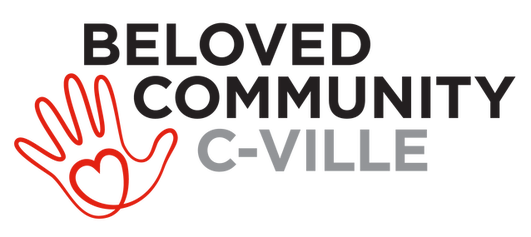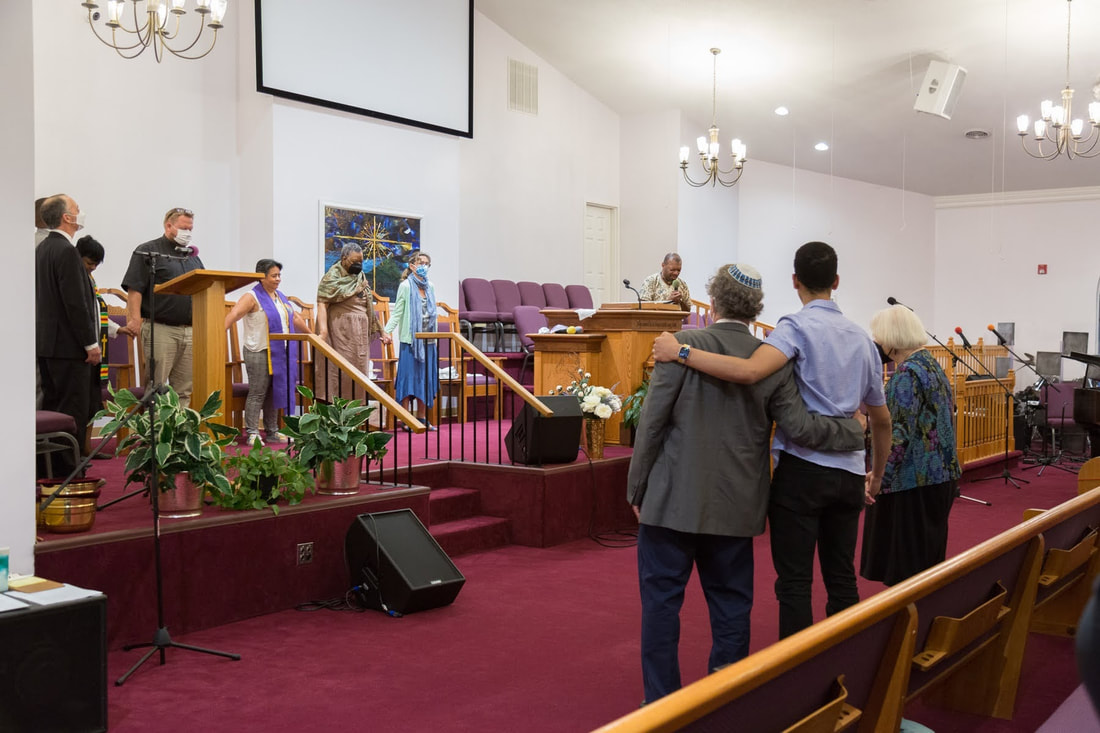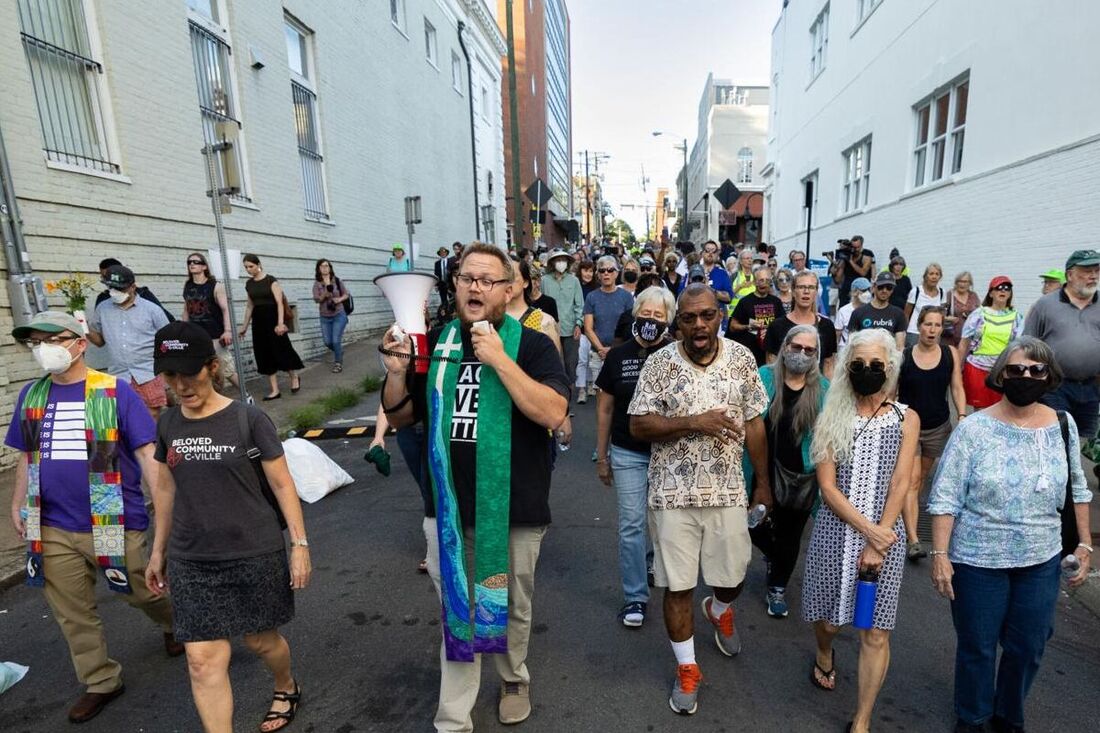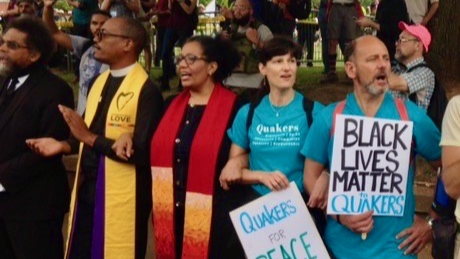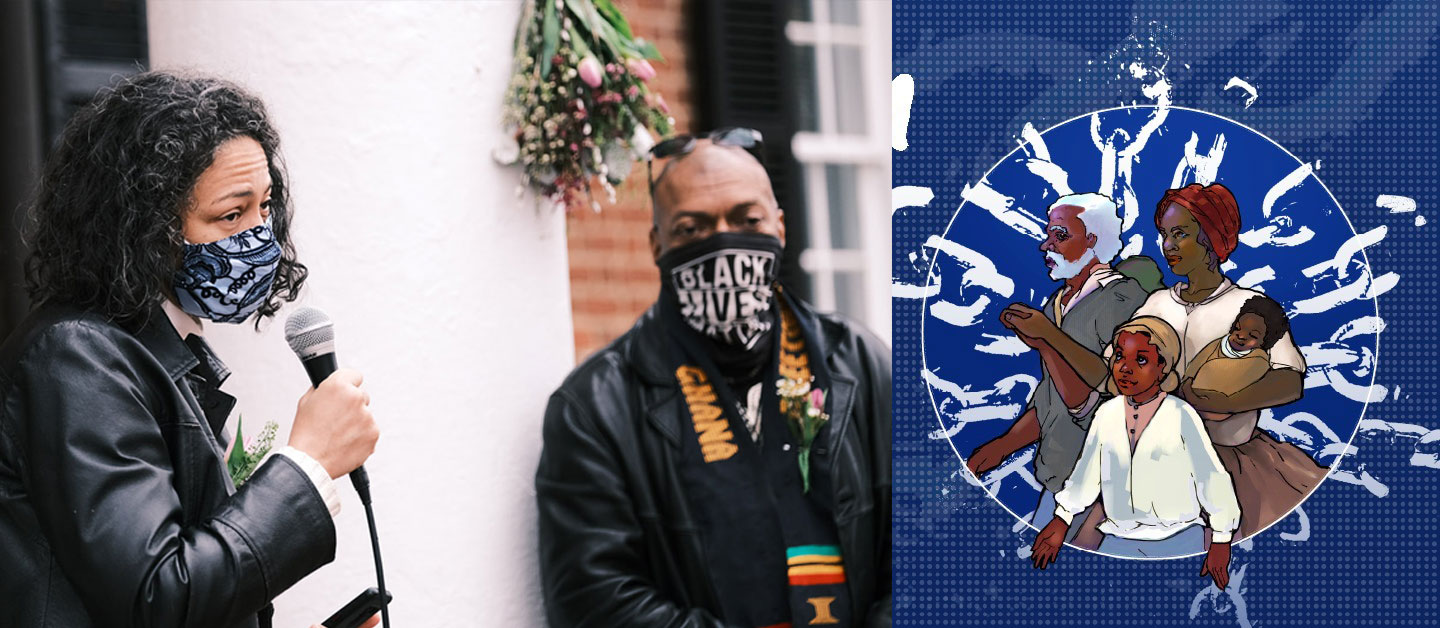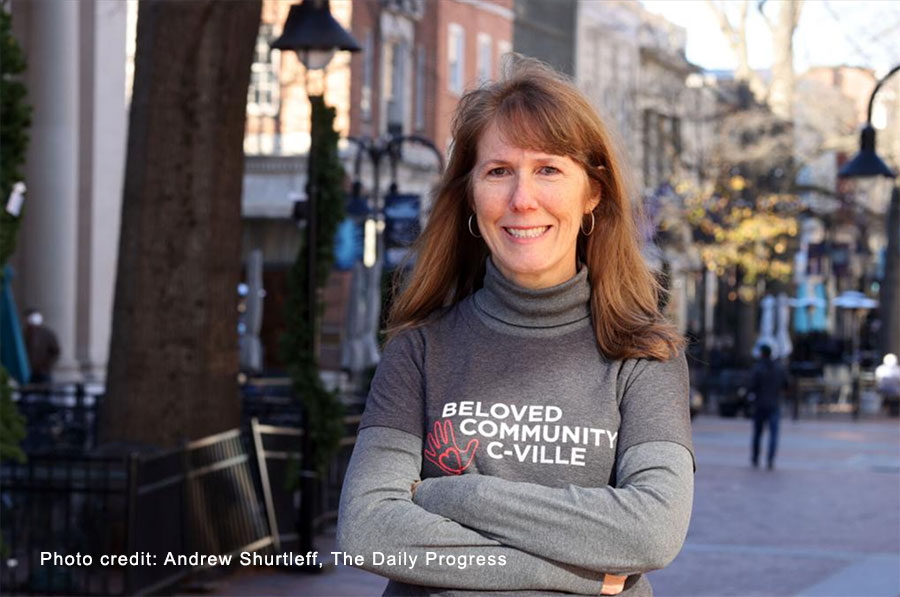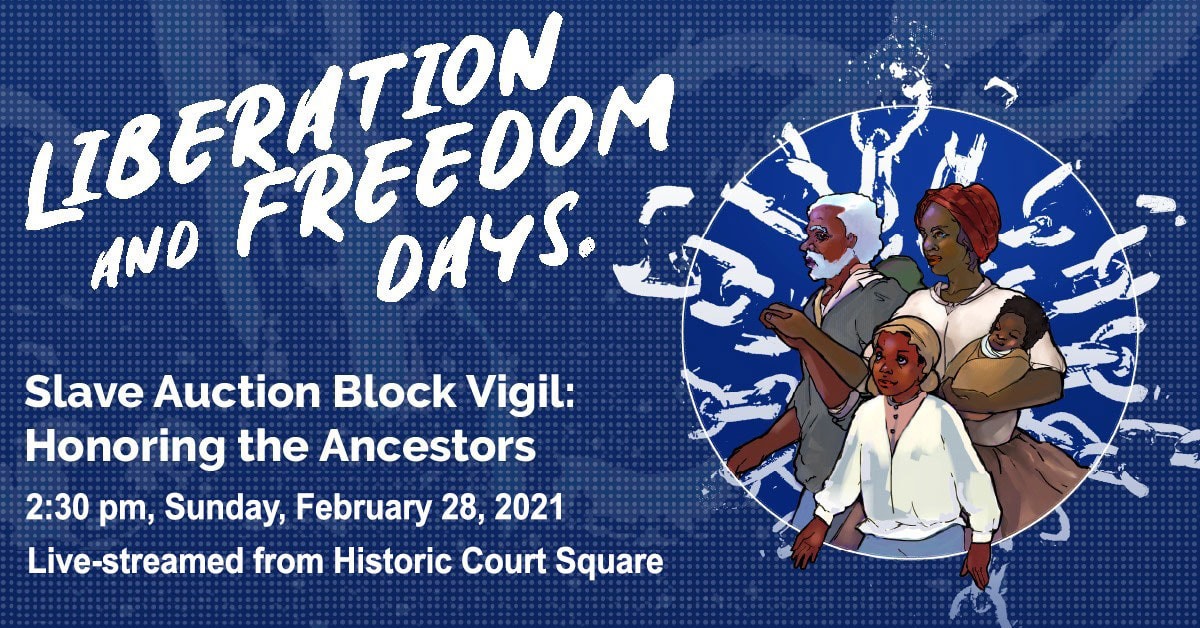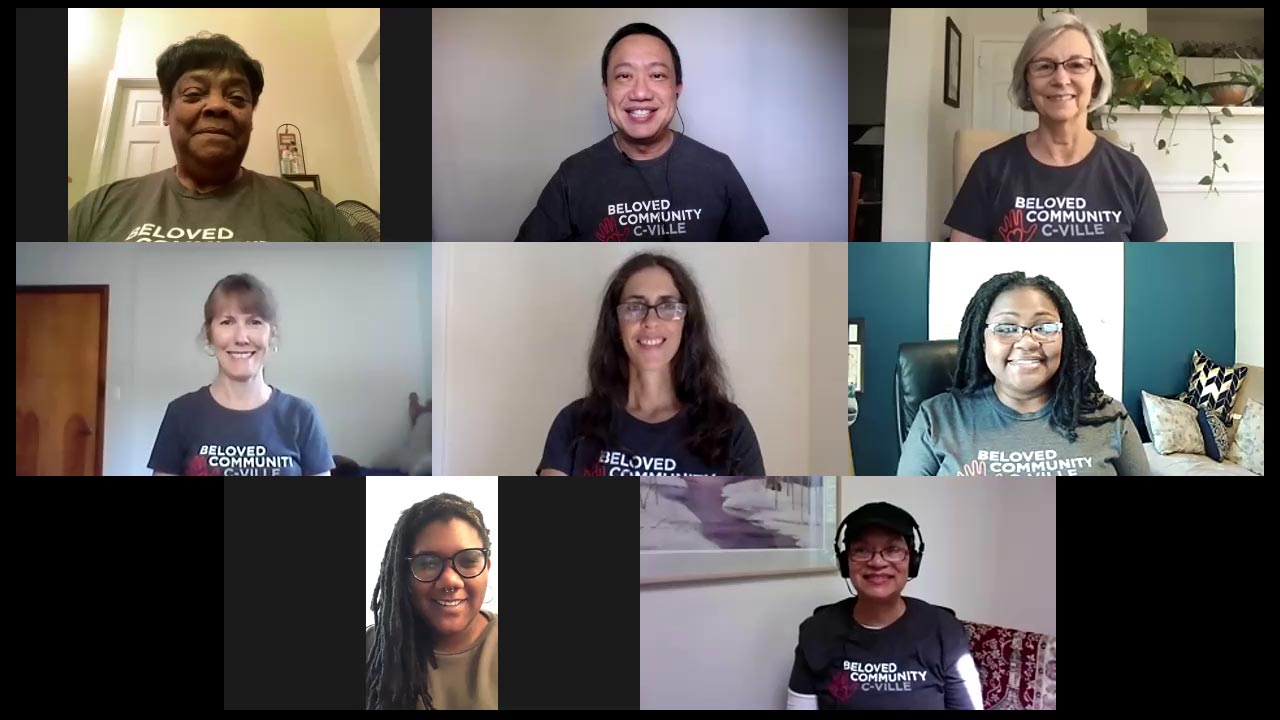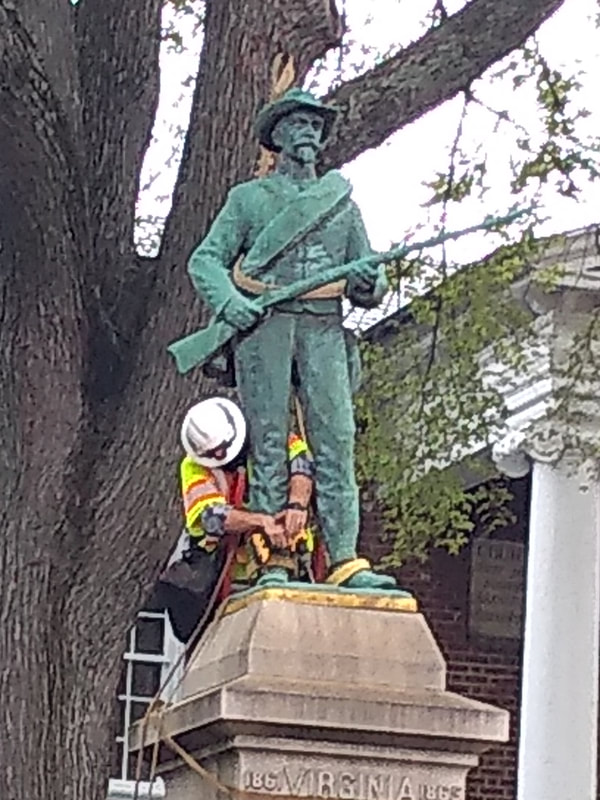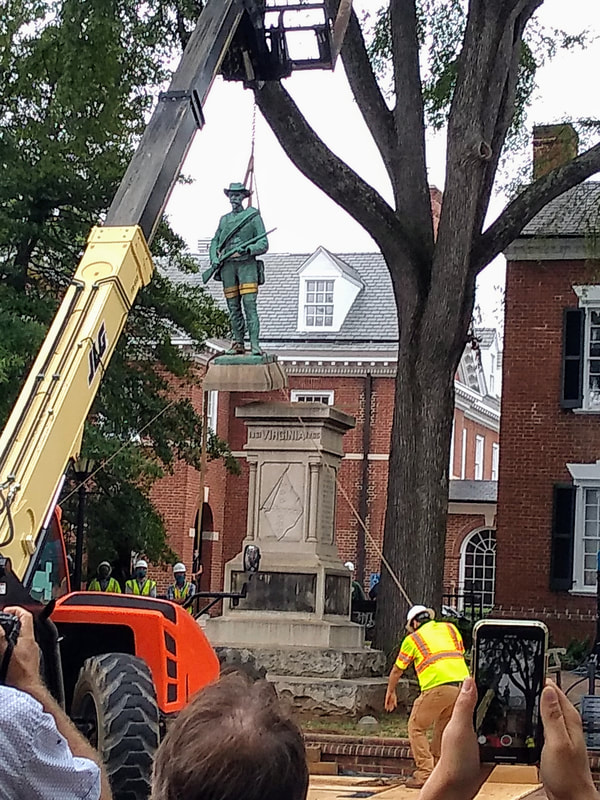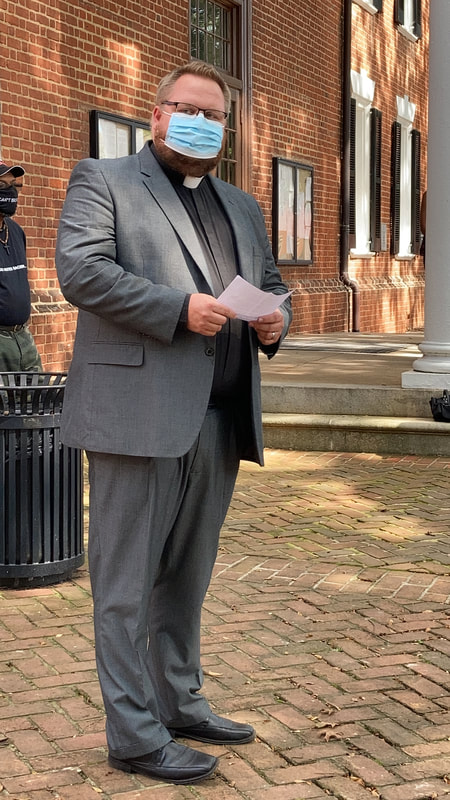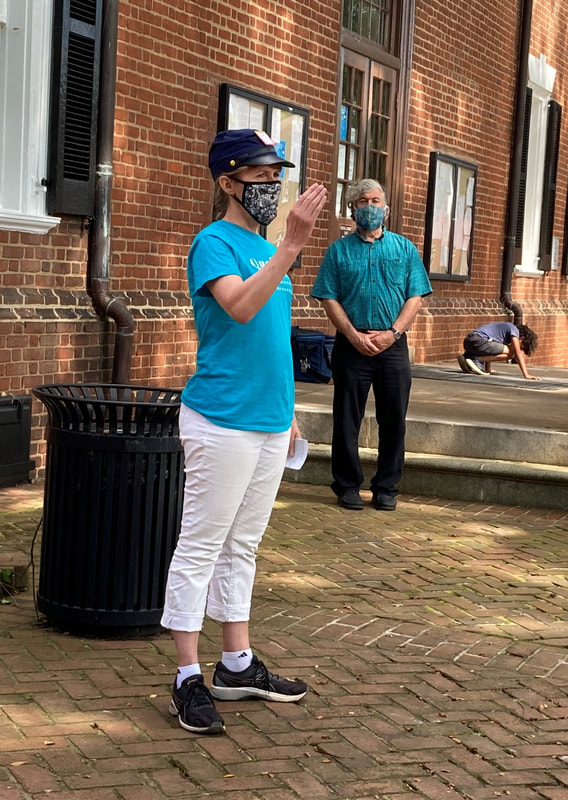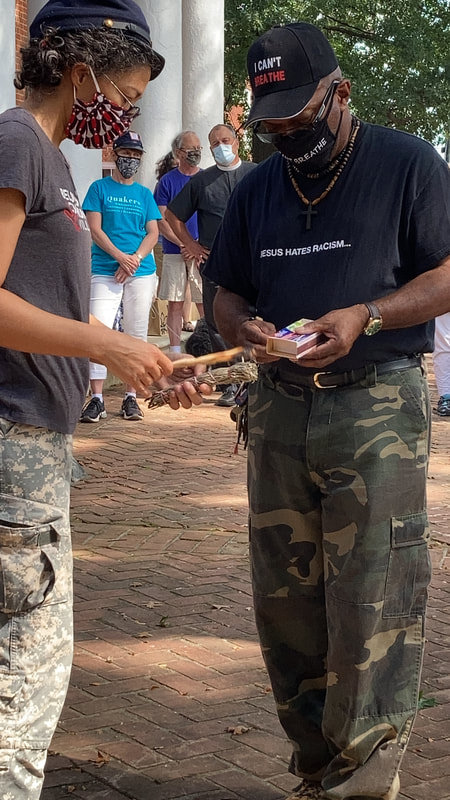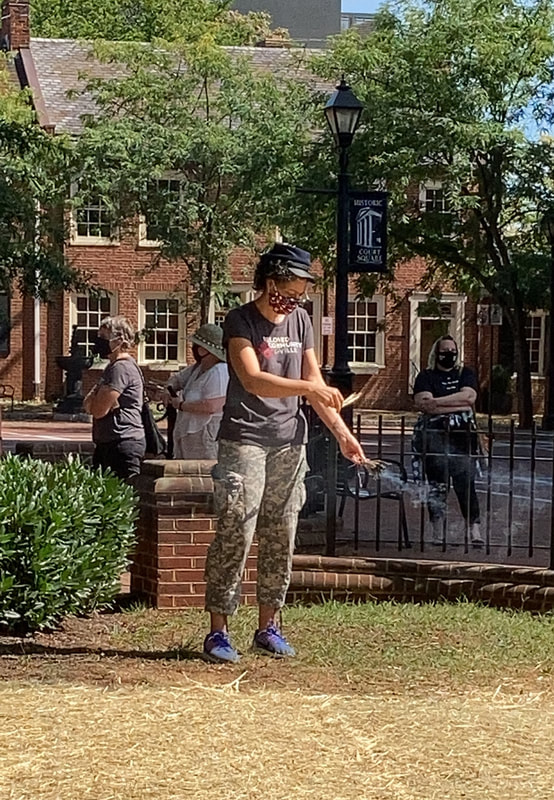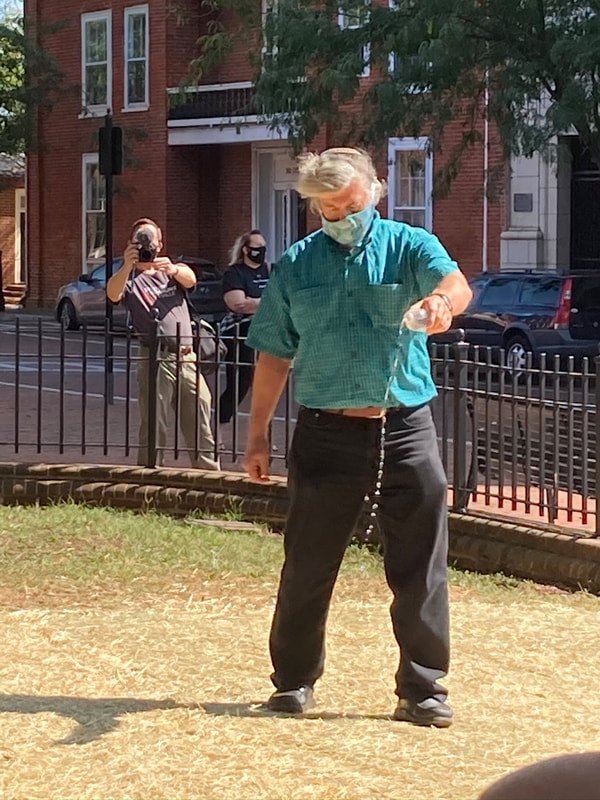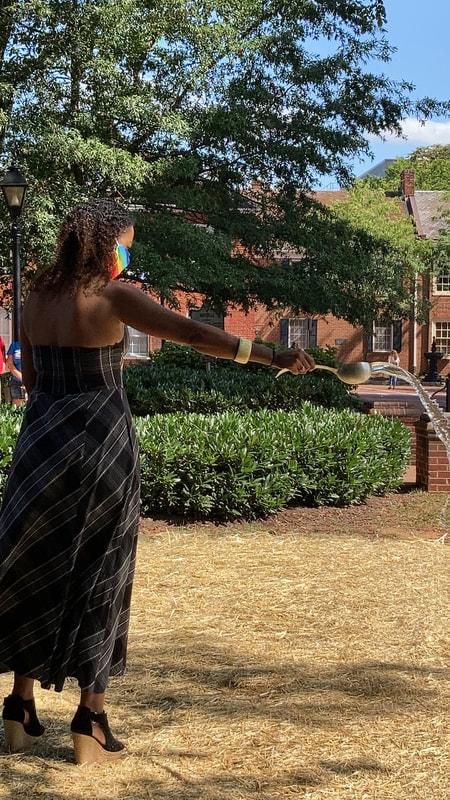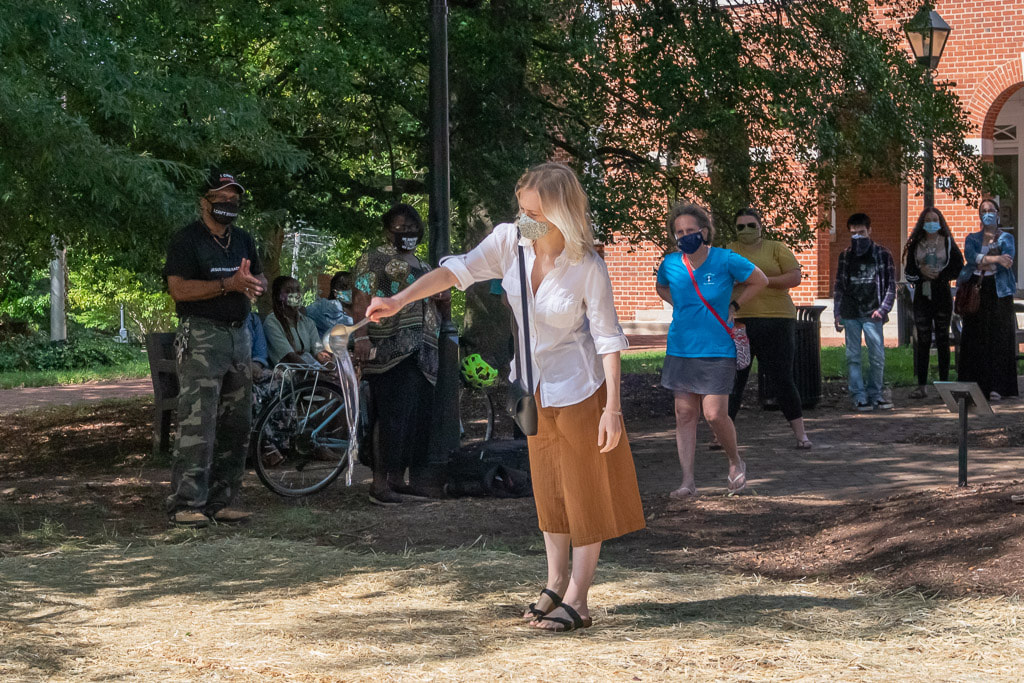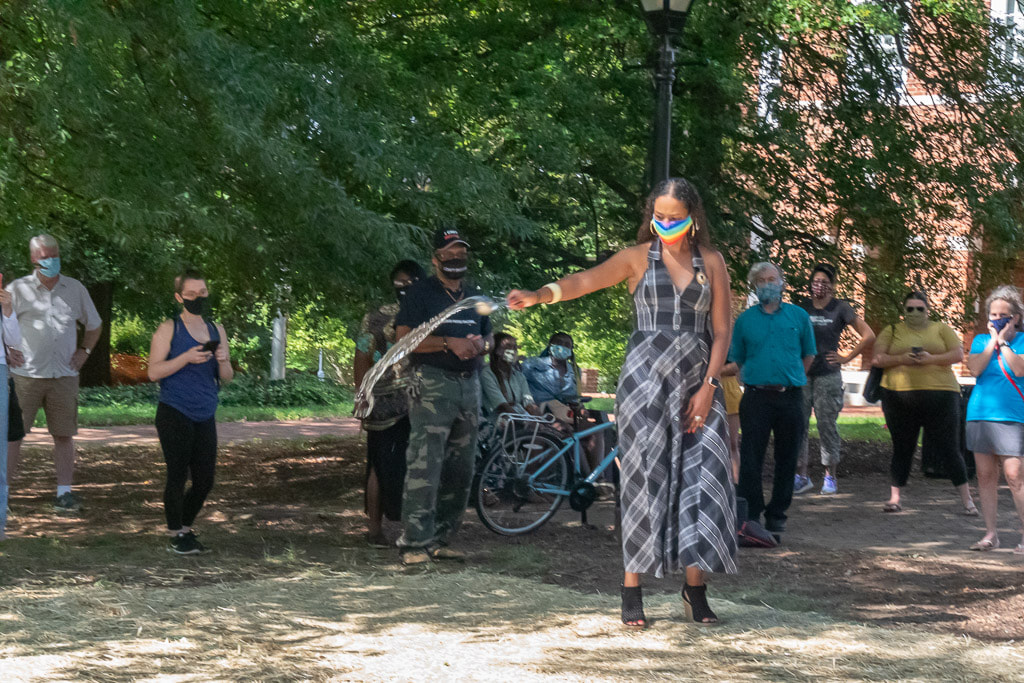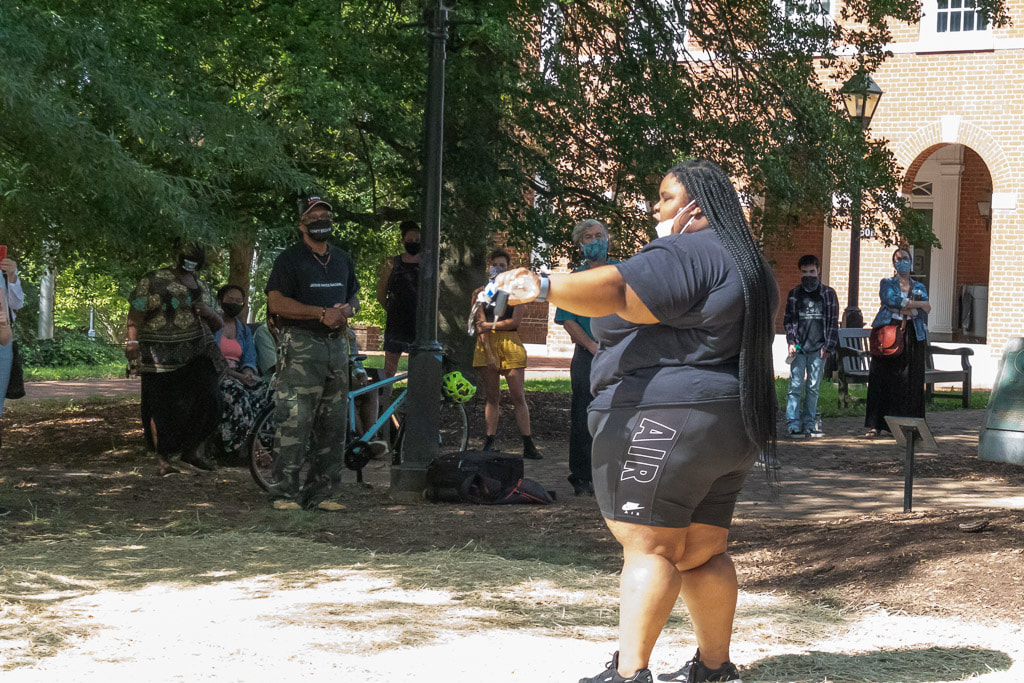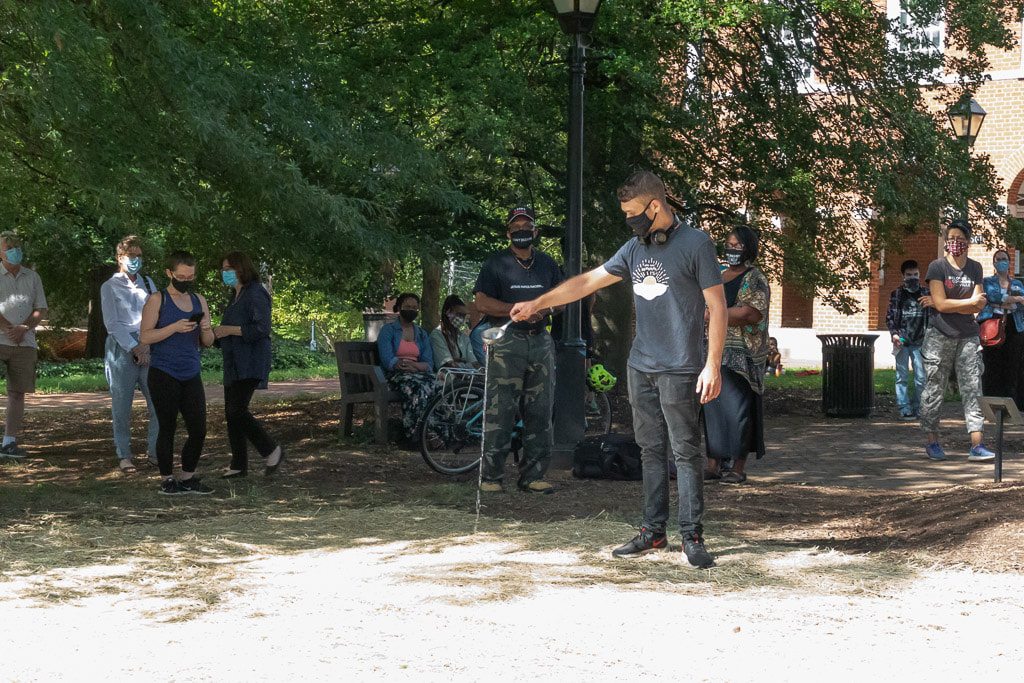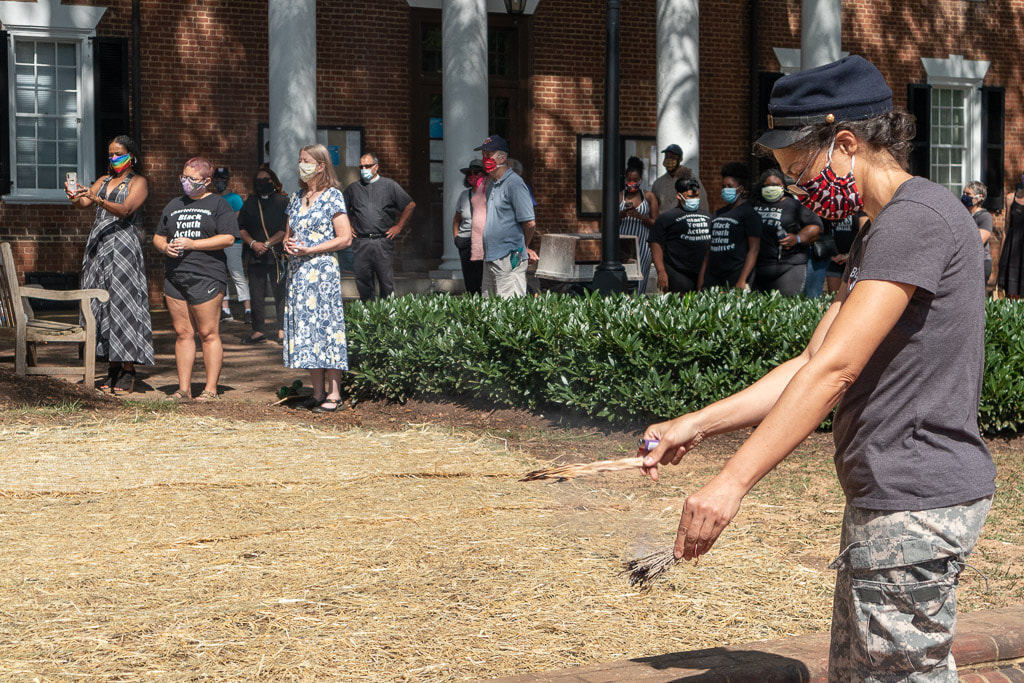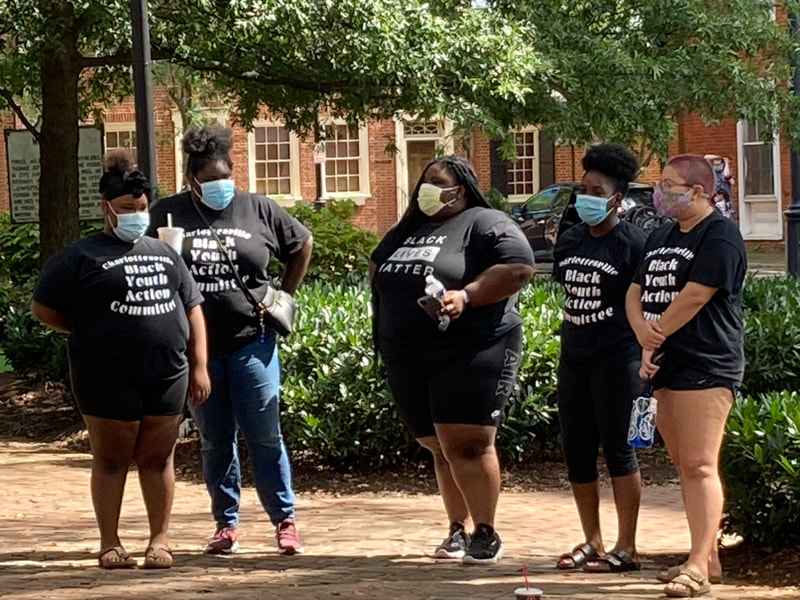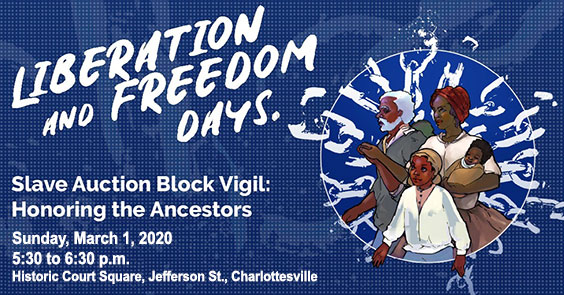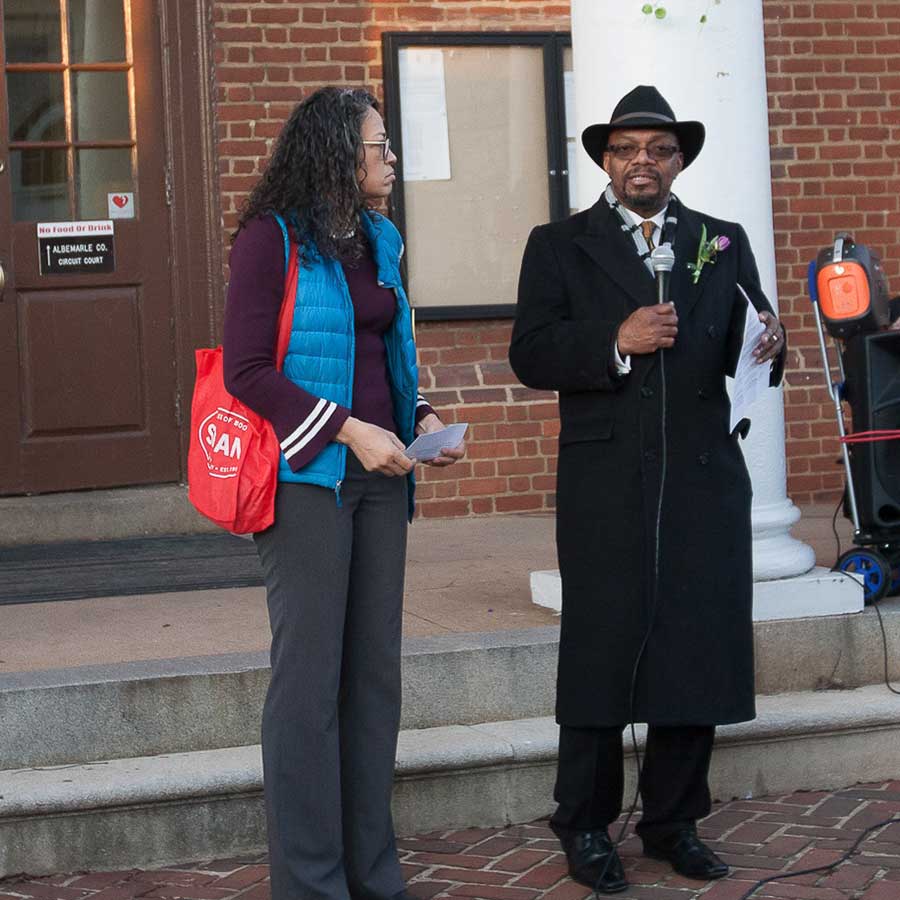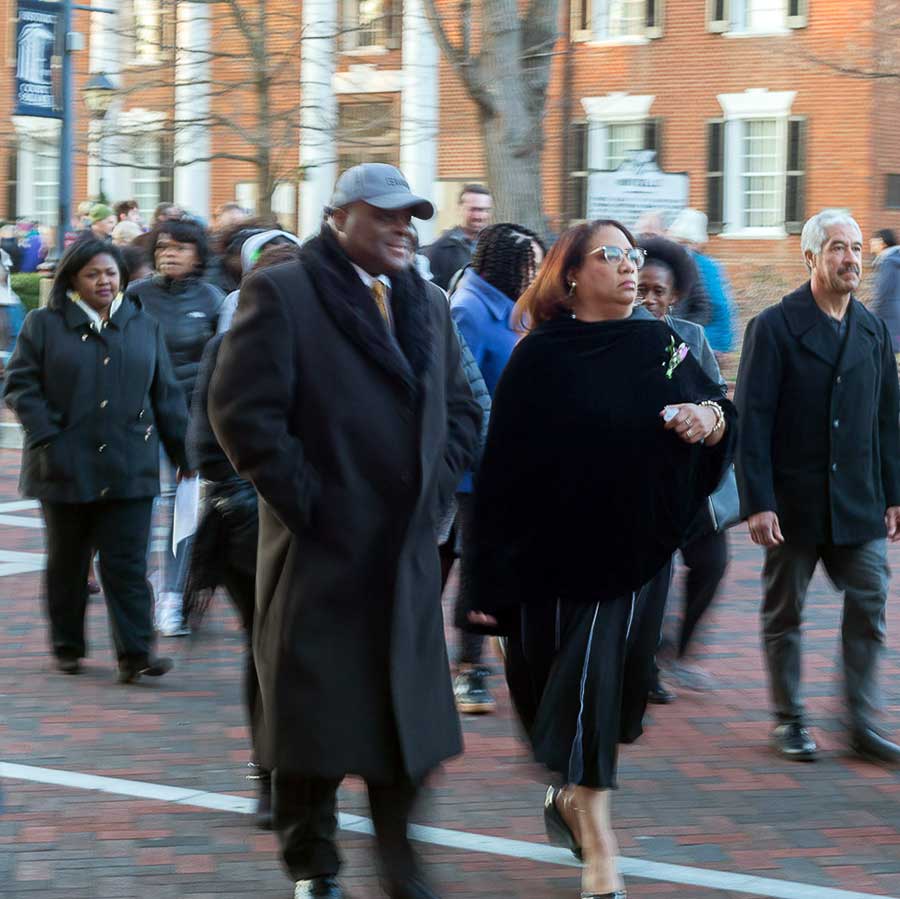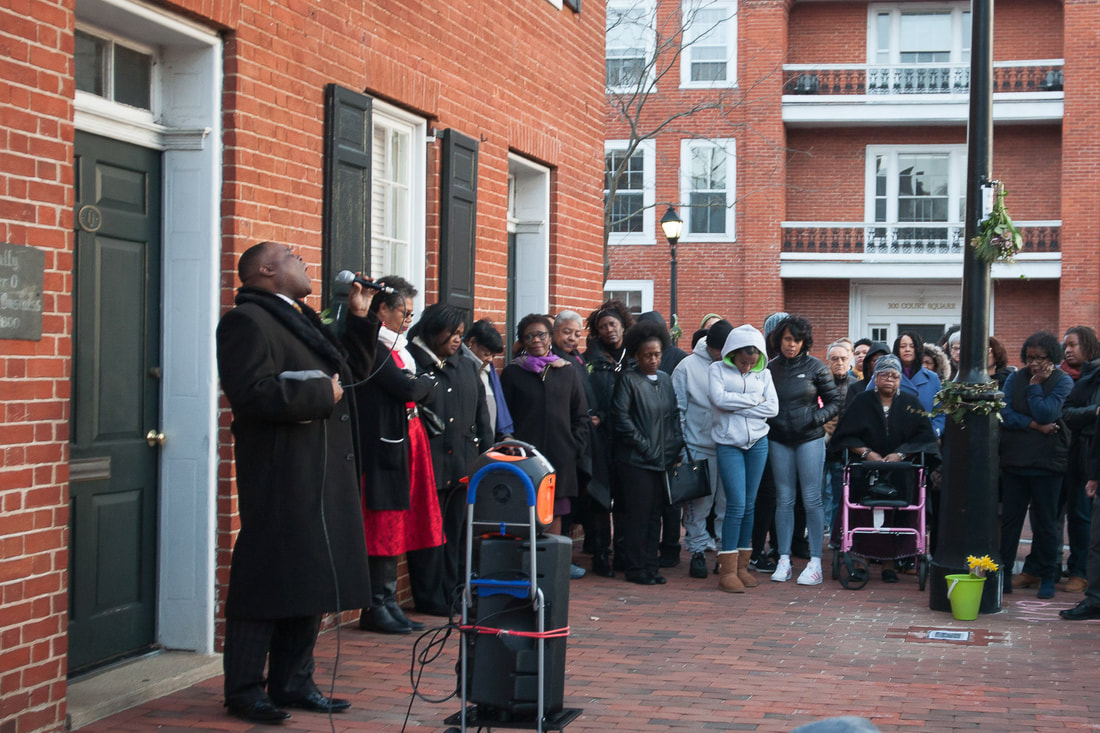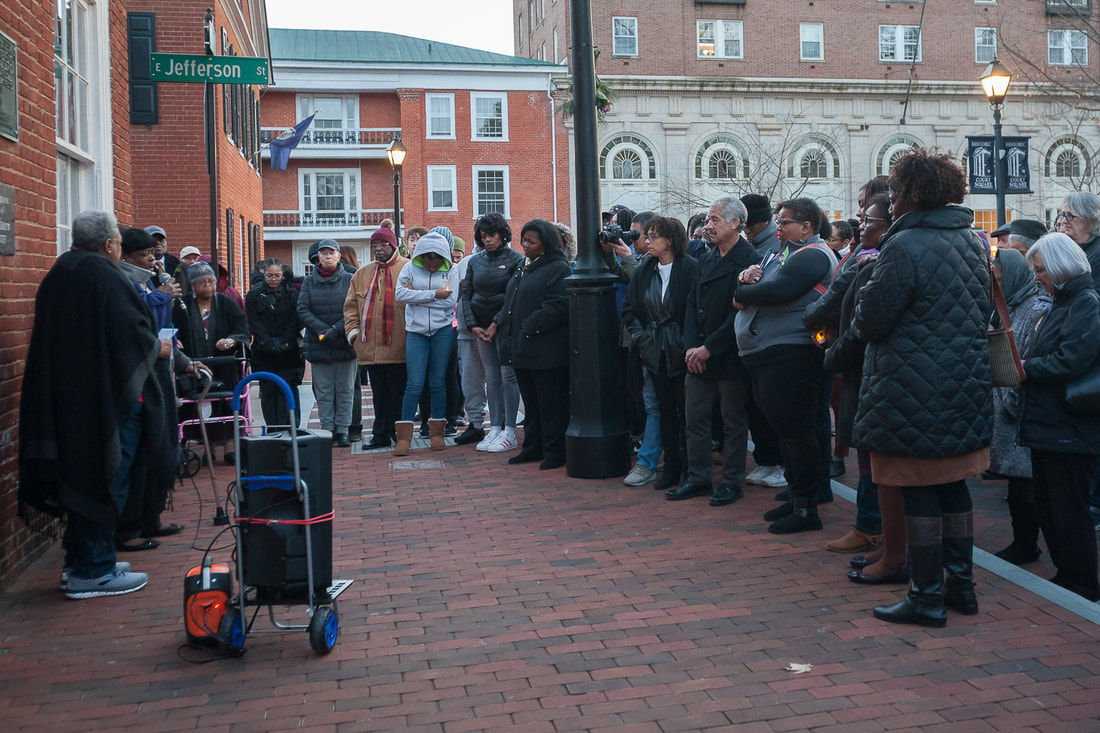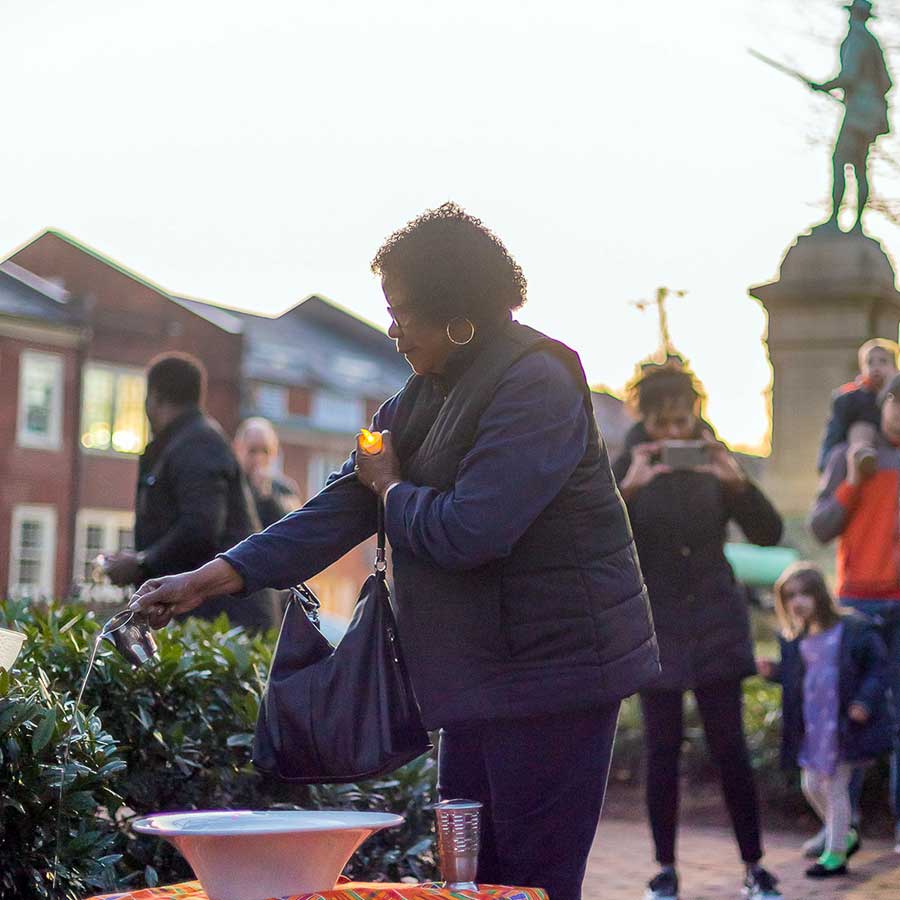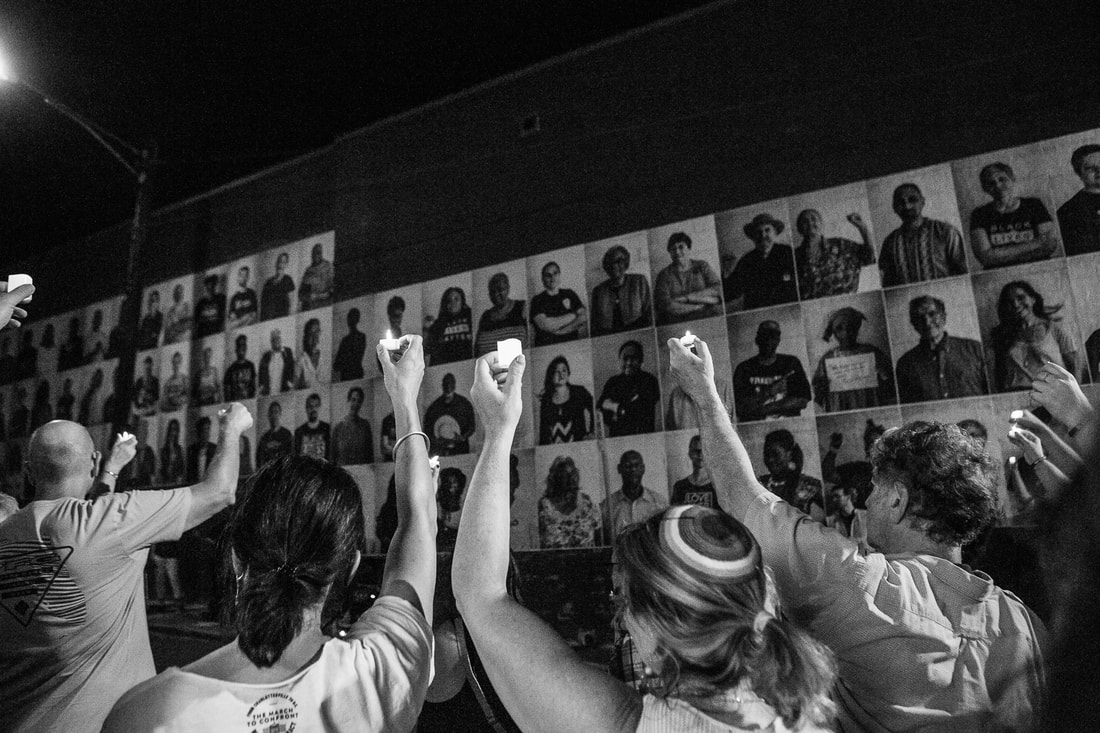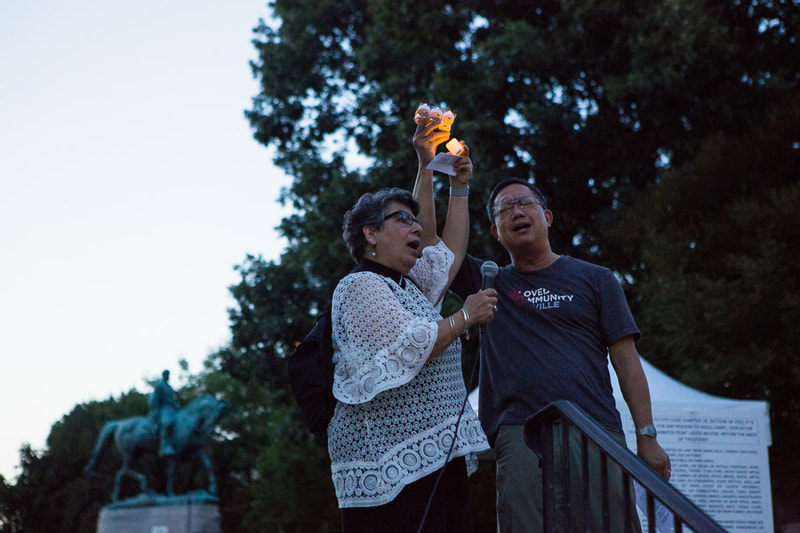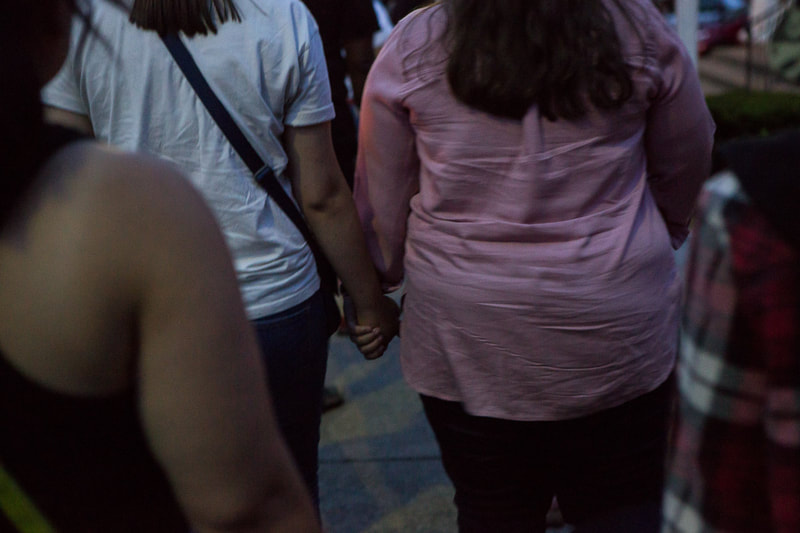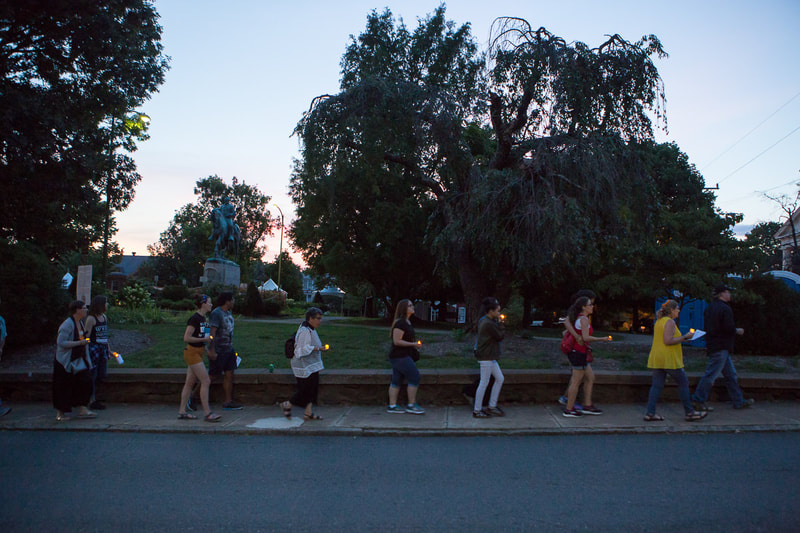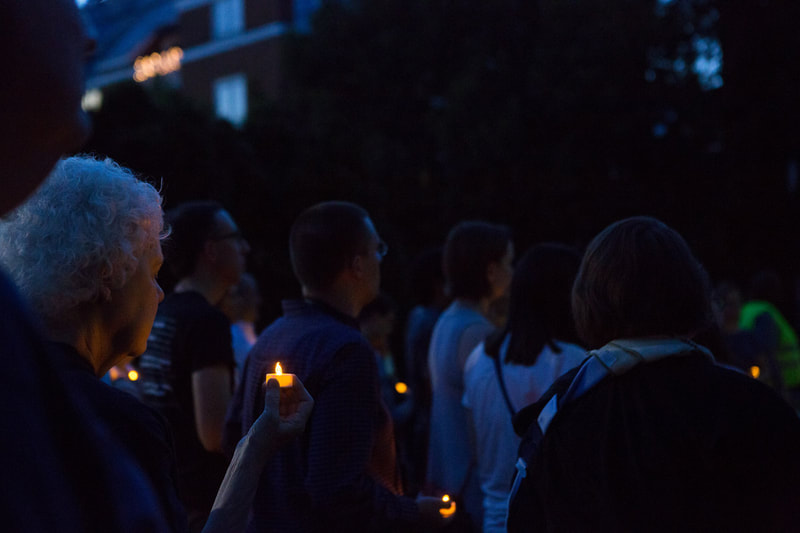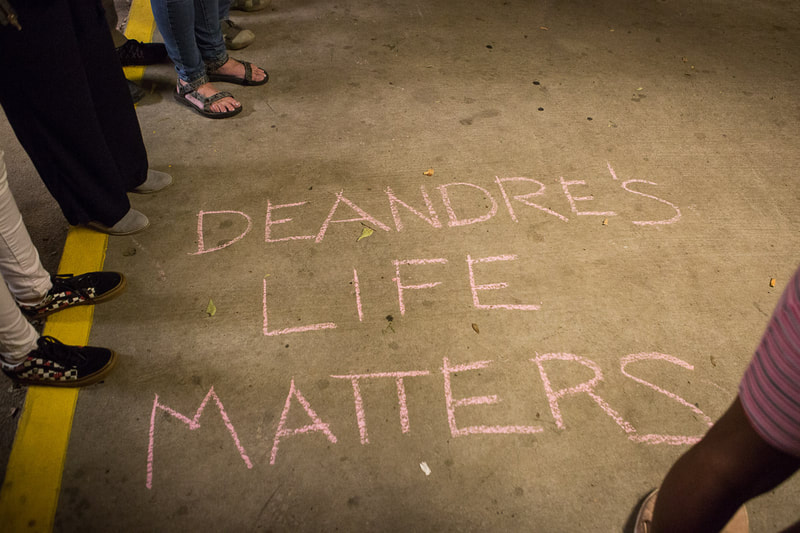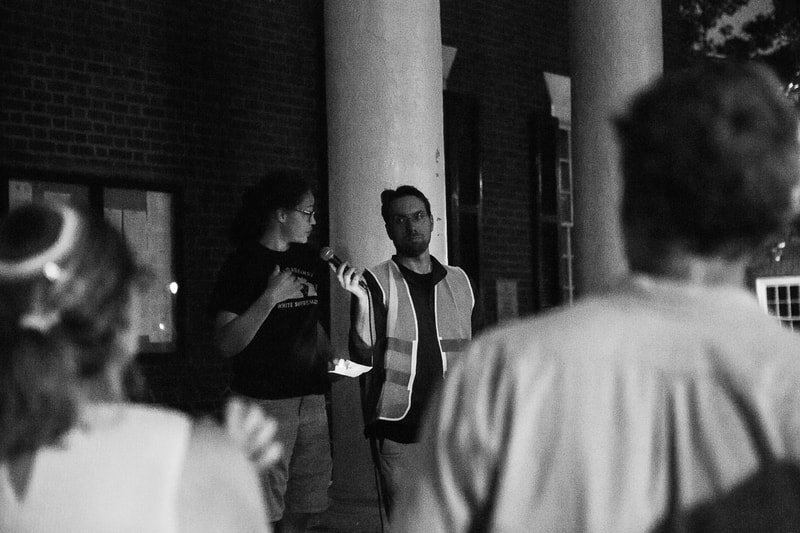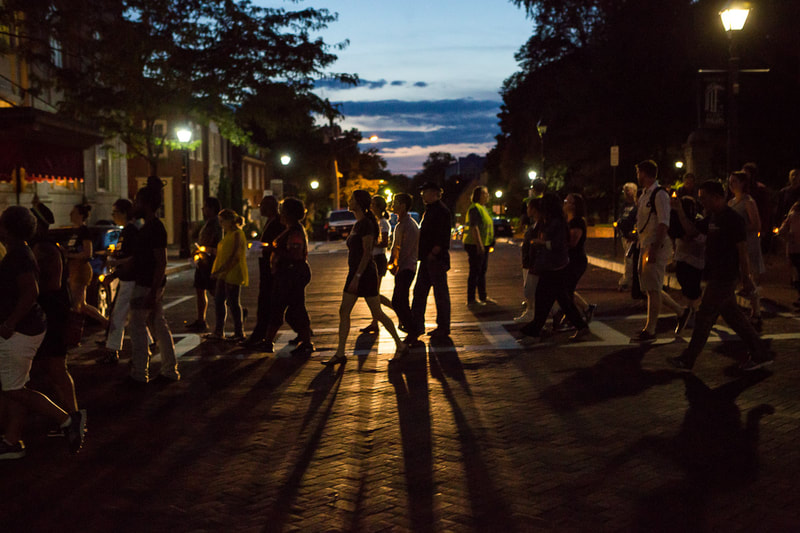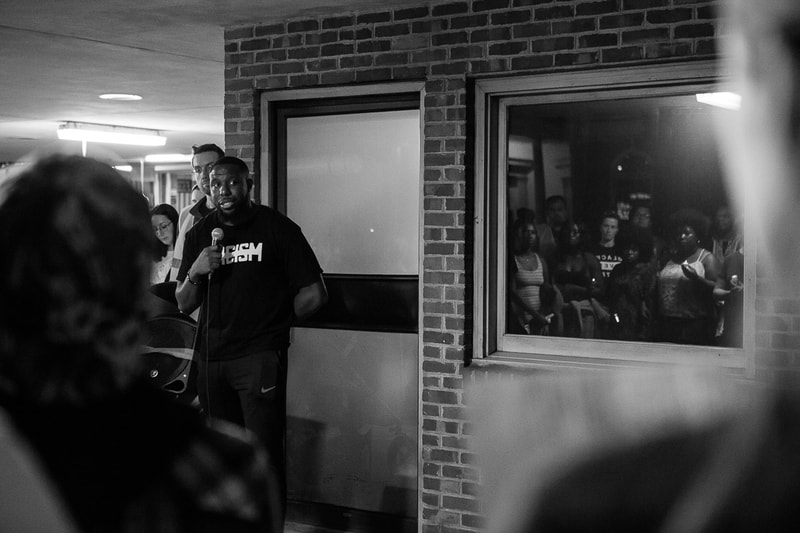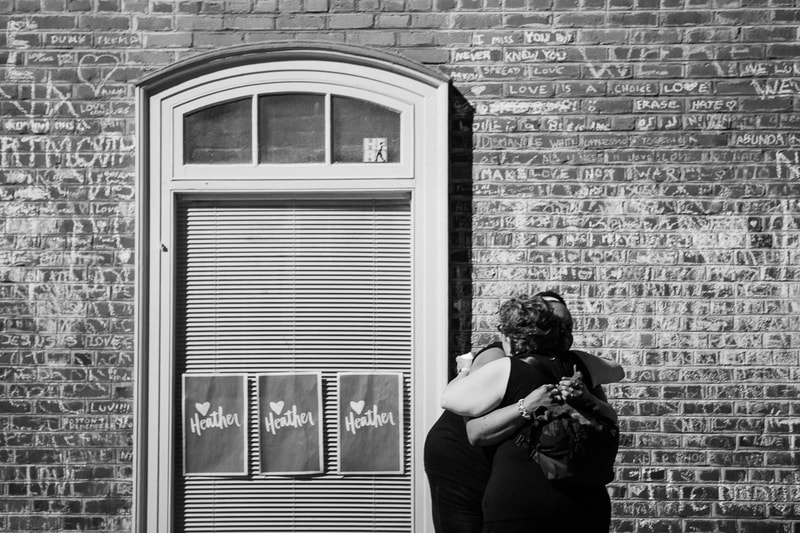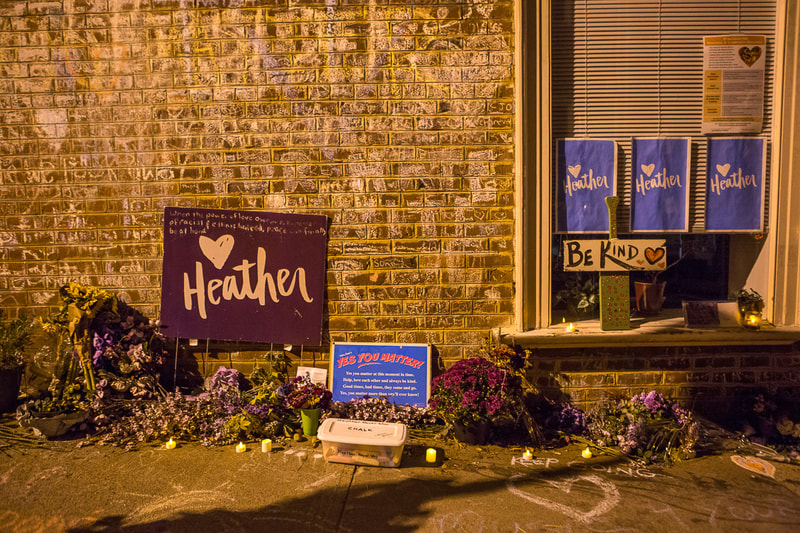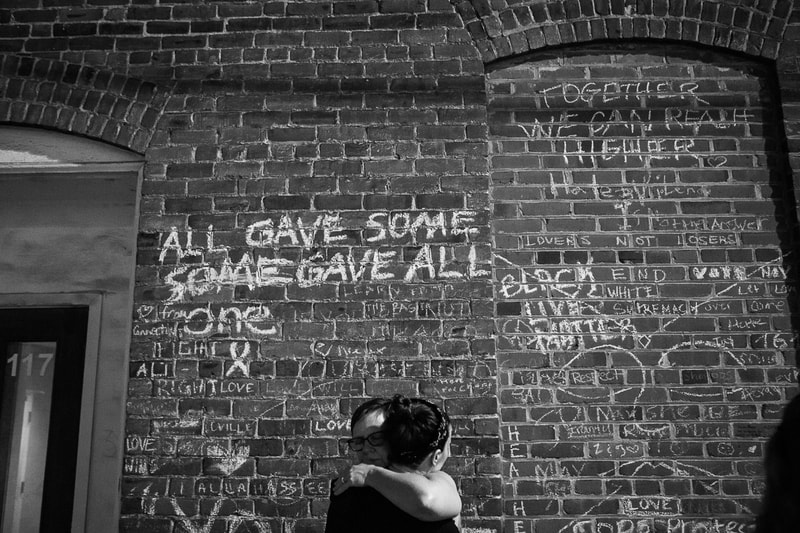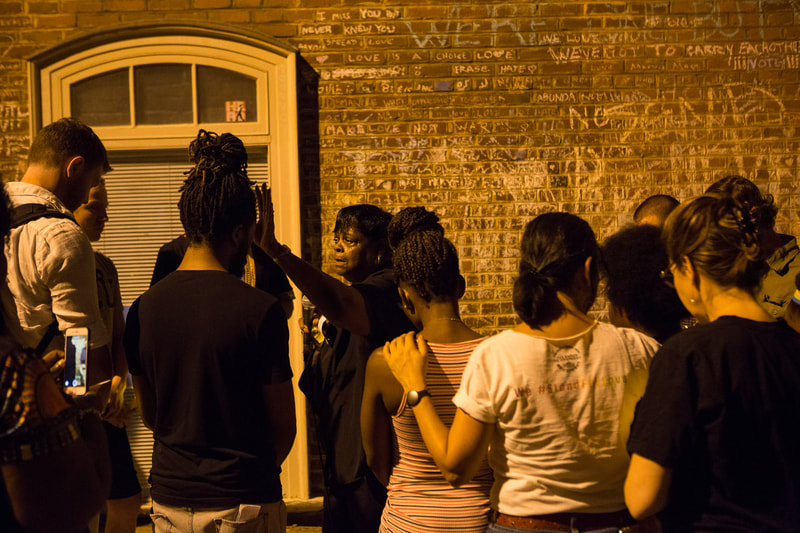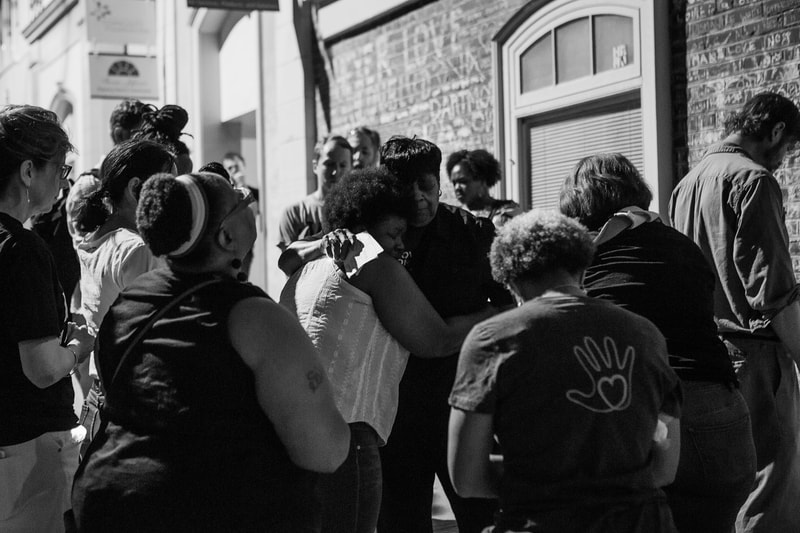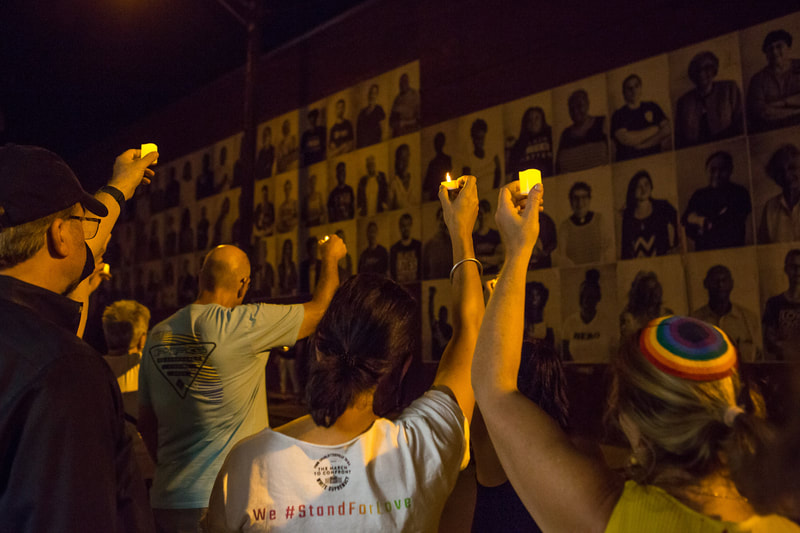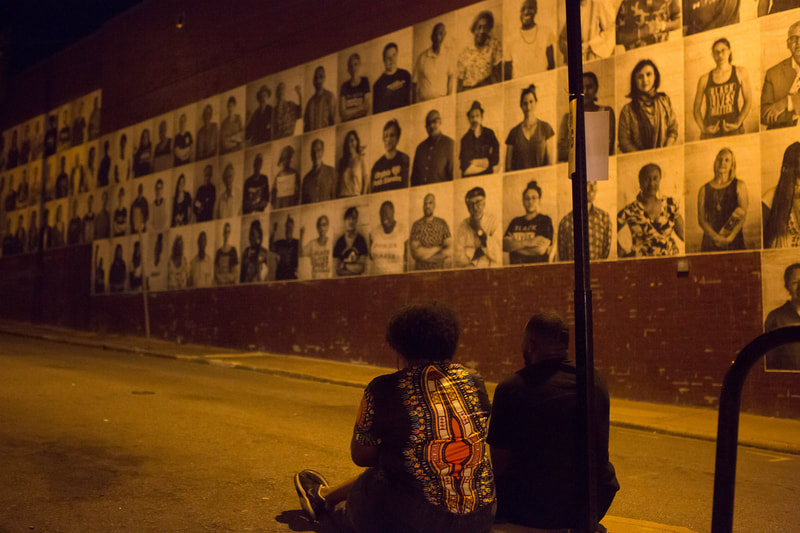|
Dear President Ryan,
Last Saturday the Virginia State Police unleashed chaos and violence on unarmed students and local community members who were protesting peacefully on UVA Grounds. The decision to inflict this force on them was not only ruthless, it was disproportionate. We were truly horrified to witness militarized police in riot gear plow through the small encampment, tearing down tents, while pushing, grabbing, and pepper spraying anti-war protestors in the face. Listening to the terrified screams was chilling. Those of us who are students of civil rights history know that a militarized police force is often used as a tool of oppression to enforce systemic racism in this country. From our perspective, the decision to violently overpower protestors last Saturday fits into a historical pattern of the powerful “punching down” on those with less power and voice. The non-violent protesters gathered that day because they care deeply about what’s happening in a war zone. They were attempting to speak truth to power. Compounding injustice, the decision was then made to not allow the arrested students to return to Grounds. For some, this has meant losing access to meal plans and belongings in dorms, as well as not being able to finish the academic year. Please consider the health and wellbeing of these students as if they were your own children. They are not the enemy and they deserve fair treatment and care, especially by the university that they’ve entrusted with their education. We urge you to immediately lift the “No Trespass Order” for all students, faculty, and staff. Signed, Elizabeth Shillue, Director, Beloved Community Cville (BCC) Michael Cheuk, Assistant Director, BCC Don Gathers, Member, BCC; Community Activist Apostle Sarah Kelley, Pastor, Faith, Hope and Love Church; Docent, BCC Brenda Brown-Grooms, Co-Pastor, New Beginnings Christian Community Dianne Bearinger, Social Media Manager, BCC Lisa M. Draine, Community Member Emily Dreyfus, Legal Aid Frances Racette, Quaker witness Jenny Phillips, Community Member and chaplain Gene Locke, Retired clergy, Westminster Presbyterian Church Adam Slate, Unitarian Universalist seminarian Sharon Beckman-Brindley, Insight Meditation Community of Charlottesville Karen Mann, Pastor, Sojourners UCC Richard Lord, Activists Guide Laura DeVault, Community Member
0 Comments
Dear President Ryan,
As the Charlottesville Community mourns the senseless and tragic loss of Devin Chandler, Lavel Davis Jr., and D’Sean Perry, we thank you for your compassionate leadership during this difficult time. We hold space for the families of these young men, for Michael Hollins, Marlee Morgan, and their families, all who witnessed the event, the UVA and Charlottesville community, and everyone impacted by this horrific act of violence. Our community knows all too well the human cost of gun violence. Last month, two teenage boys were shot in a parking lot near the Downtown Mall, and an individual was killed outside a local restaurant. In the past six months, the Charlottesville Police Department responded to approximately 162 calls of shots fired. We carry in our hearts the people taken from us, the survivors whose lives are forever altered, and the trauma and fear our community faces. Public prayers and tributes provide a measure of comfort, and we are grateful to you for leading these efforts. However, it is now time to lead a more profound and impactful effort. In solidarity, we ask that you advocate for the change needed to prevent gun violence in Charlottesville and our nation. As president of a world-class educational institution, you work alongside experts on preventing gun violence. UVA Professor Richard Bonnie was an original architect of Extreme Risk Protection Orders after the Sandy Hook massacre. And, just this past May, a coalition of national researchers, including experts from UVA, issued a call to action that included an 8-point violence prevention plan. As one of the researchers asserted, “scientifically, we know what to do to reduce gun violence. The question is whether our leaders will do it.” We call on you, President Ryan, to be one of those leaders. We ask you to use your influence and the power of this moment to address gun violence as the public health crisis that it is and to advocate for evidence-based prevention policies that include:
You have called for the University to be a beacon for what is great and good. Your leadership could make a difference. In our community and the nation, this truly matters. Signed, Elizabeth Shillue, Director, Beloved Community Cville, UVA parent Michael Cheuk, Assistant Director, Beloved Community Cville; UVA alum Sharon Harris, Newsletter Editor, Beloved Community Cville; UVA parent and alum Apostle Sarah Kelley, Docent, Beloved Community Cville; UVA "Hidden Nurse" Scott Hamler, Media Consultant/Producer, Beloved Community Cville; son of long-time UVA employee Charlottesville walking vigil sparking change together By: Filip Timotija | Aug 13, 2022 | Original Publication: The Daily Progress
"On Friday, Aug. 12, Charlottesville residents gathered at the First Baptist Church on West Main Street for a one-mile “Walking Vigil of Remembrance” to visit locations where, five years ago, protestors stood against the hatred of white supremacists. At each location, local leaders offered prayers, songs and words of history to the activists, organizers and survivors of the deadly rally. One of the event organizers and the founder of Beloved Community Cville, Elizabeth Shillue, hoped that the vigil will present a powerful affirmation to together create and change for the better. “It eases something in one’s heart and gives one hope to know that we can move past and we can recommit to creating the beloved community within Charlottesville,” Shillue said. Shillue said the long-term impact of the vigil, which is to be held annually, is to maintain consciousness about the horrible attack in people’s minds because “it’s easy to forget. And it's important that we never forget.” Five years ago, racist, antisemitic, white nationalist, and white supremacist groups invaded Charlottesville to “Unite the Right” on August 11 and 12, 2017. In one of the largest, most violent gatherings in the United States, extremists marched on Charlottesville’s Downtown, armed in full battle gear, wielding torches and weapons, spewing hatred, and attacking community members. That account has become synonymous with our city and of those days. But the fuller, more accurate portrayal is of Charlottesville, the community that led resistance to white supremacists.
What the news outlets did not do justice to was all of the creative ways community members pulled together to defend their town, prevent harm, and take a stand against hatred. Weeks of planning, discussions of shared values, strategy sessions, and the decisions of many to put faith into action made a difference on that day. These partnerships and the work continues. As we reflect on the racial hatred and violence that invaded our streets five years ago, which ripped the bandaid off of the racial wounds of our past, we recommit to our exploration of truth and our commitment to becoming a beloved community - a community in which everyone is cared for, absent of poverty, hunger, and hate. As was the case for Rev. Martin Luther King Jr., we are fueled by a faith that such a community is, in fact, possible. We invite you to:
Charlottesville commemorates Liberation and Freedom days on March 3 -6, celebrating the arrival of Union Cavalry into the area in 1865. The surrender by local town and university officials led to the liberation of more than half of the town’s population. African-Americans made up 53.3% of the population at the time and thousands of enslaved residents took advantage of the Union occupation as an opportunity for escape.
On March 3,1865, Union troops led by Generals Philip Sheridan and George Custer arrived on the outskirts of University grounds (on Ivy Road near St. Anne’s-Belfield School). City officials and University professors met the troops there – Mayor Fowler surrendered the town, and the professors asked that the university be protected, fearing that it might go up in flames as Virginia Military Institute (VMI) had done. Custer agreed and posted a guard during the three-day occupation. The University suffered little damage, but the Charlottesville Manufacturing Company (later the Charlottesville Woolen Mills) which produced Confederate uniforms was burned to the ground. Three days later, on March 6, Sheridan's troops left town, riding south in the direction of Scottsville. Some of Charlottesville's enslaved African Americans used the Union departure as a means of escape. One Union soldier wrote later that there was a “train of negroes now numbered thousands and was constantly increasing." When the war ended a month later with Lee’s surrender to Grant at Appomattox, over half of the population of Albemarle and Charlottesville became officially free and that began a period of hope and intense political activity for African Americans in the area during the period of Reconstruction. The establishment of the Jefferson School for black students was one of those accomplishments. In 2017, the Charlottesville City Council established March 3 as a holiday to commemorate the arrival of Union troops and the liberation of 14,000 enslaved people living in the city and county at the time. Then in 2019, councilors voted 4-1 to remove Jefferson’s birthday on April 13 as an official city holiday and replace it with the March 3 “Liberation and Freedom Days”. Since 2018 events have been held in Charlottesville to commemorate the liberation of our city. For the last two years Beloved Community Cville has hosted the kick-off event that focused on the human trafficking which took place in Historic Court Square. The “Slave Auction Block Vigil: Honoring the Ancestors” was held in 2020 and 2021 to acknowledge the trauma which took place there and honor the ancestors. This year's local events can be found in the Feb. 28th issue of our newsletter. We encourage you to join in! To learn more: encyclopediavirginia.org: “Union Occupation of Charlottesville (1865)” cvilletomorrow.org: “Freedom and Liberty Day Illuminates “lost history” of black leadership” When MLK arrived at the Charlottesville airport in 1963 for his speech at UVA, there was no official greeting, and he wasn’t welcomed in our restaurants or hotels. Many were concerned about the negative attention his speech at Cabell Hall Auditorium could bring. Thus UVA officials, administrators, student council members, and much of the general public opted out of attending, leaving him with an unfilled venue.
But that night King told those who came to listen, “if democracy is to live, segregation must die.” He reminded them that, “non-cooperation with evil is as much a moral obligation as is cooperation with good.” He was perceived as a serious threat for expressing these kinds of truths. People tend to forget how disliked he was when he was killed. There are still people wishing to tear down the legacy of MLK. There’s currently a movement afoot in various parts of the country to ban books about him and to eliminate anti-racism initiatives in schools. In our own community, a lawsuit against the Albemarle County School Division seeks to undo the county’s anti-racism policy adopted in 2019. And Glen Younkin’s first executive order as governor is “to ensure excellence in K-12 public education in the Commonwealth by taking the first step on Day One to end the use of inherently divisive concepts, including Critical Race Theory, and to raise academic standards." The struggle for justice and equality continues on... right here, right now. -- Elizabeth Shillue Elizabeth Shillue shows love for the community through her anti-racism activism by Ginny Bixby Elizabeth Shillue didn’t plan to become an activist when she moved to Charlottesville, but today, it’s her life’s work. The founder of Beloved Community Cville, a local organization focused on anti-racism activism and education, is quick to defer to others’ leadership and stories. “It’s really important to respect past leadership in the movement for Black lives within Charlottesville, as well as the leadership that’s already established and emerging,” she said. Shillue grew up in Connecticut and later lived in Tucson, Arizona before moving to Charlottesville for her husband’s job at the National Radio Astronomy Observatory. Shillue was working as a social worker at the time. “My entire work life has been with people who are suffering or on the margins in some way. I worked with prisoners, detained refugees. Alzheimer’s patients, caregivers, veterans, terminally ill, disabled, elderly people,” Shillue said. Shillue said her Quaker faith combined with her experience working as a social worker was a big catalyst for her activism. But after a personal crisis, Shillue really felt the call to get more involved in making change. “I came into a new understanding of how stigma and marginalization really operates in our society,” she said. “I really had a shift inside in how I showed up.” And after seeing the documentary “I’m Not Racist… Am I?” in 2015, Shillue said her eyes were opened further to inequity in society, especially when it comes to race. The documentary follows a diverse group of high school students as they engage in difficult conversations about racism. Shillue wanted as many people as possible to see the film, so she organized a showing at the Paramount Theater downtown later that year. Shillue contacted Charlene Green, who was then the Director of the city’s Office of Human Rights, about hosting a showing in partnership with Shillue’s Quaker meeting. The screening at the Paramount sold out. Following the Paramount showing, Shillue and Green organized about 27 showings in venues across the community, including schools, churches and the University of Virginia. They also trained 40 discussion leaders. Shillue hoped to get 2,000 community members to see the film. She estimates at least double that number of Charlottesville residents has come to one of the showings. “Literally to this day, I still meet people who tell me that film had an impact on them, and that it impacted how they see people like their students and their patients, and how they’ve been inspired to do things differently,” Shillue said. As Shillue organized more and more showings of the film, it became clear to her this was getting bigger than just film screenings. So, Beloved Community Cville was born. The name of the organization comes from Dr. Martin Luther King, Jr. “He envisioned the beloved community as a society that’s based on justice and equal opportunity, love of one’s fellow human beings. People forget just how threatening that vision was,” Shillue said. After Shillue witnessed the tragic events of the Unite The Right rally in August 2017 firsthand, she felt called to further her anti-racism work. This is when Beloved Community Cville really took off. Green had been organizing bus tours that highlighted the racial history of the city. After August 2017, Shillue said more community members were interested in these tours, so Green and Shillue worked together to create a bigger, more sustainable bus tour project. “In the process, we discovered how people who had grown up here had stories that related to the history that we were wanting people to learn, really made the history come alive,” Shillue said. “And so we started focusing on gathering together a multiracial group of people and the idea that we would work to shine the light of truth on our history and with an emphasis on untold stories, stories that have been kind of hidden.” The bus tour highlights places such as the site of the former Vinegar Hill Black community that was razed, historically Black churches and the sites of the Confederate statues. Shillue said the project has six docents and six advisory members, and the group is over 70% non-white. “What has impressed me about Elizabeth’s work is the fact that she’s worked so hard to make it accessible to lots of different ages,” said Green, who is now the deputy director of the Piedmont Housing Alliance. “She’s putting information out there for people to come and think about and talk about and hopefully create some action around that changes Charlottesville for the better as we continue to grow and diversify and and just figure this whole mess out.” In light of the COVID-19 pandemic, Shillue wanted to keep the tour accessible. So Beloved Community Cville started organizing virtual tours of various sites in Charlottesville. The organization has already released several videos and will be releasing more. “It’s really going to be amazing. People will be able to learn about significant local sites, but on their smartphones,” Shillue said. Going forward, Shillue wants even more people to learn about the true history of Charlottesville. “I think it’s really important for people who want to engage in social change in our community to learn the racial history of our community, so that they know how things got to be the way they are today, learn what the untold stories are, whose shoulders are standing on, who’s already involved in the work.” Shillue said. “It’s important also to prioritize relationships, over speed and accomplishments. And also, to always remain humble. Always be learning and willing to not know things and to be corrected.” (Click here for the complete Daily Progress article) Watch our tour promo video below:
Recording of the livestream of the vigil, courtesy of Virginia Humanities and WTJU.
Last Sunday, Feb. 28th, Beloved Community Cville hosted the “Slave Auction Block Vigil: Honoring the Ancestors” at the Historic Court Square to acknowledge the trauma which took place there and honor the ancestors. The event served as a kick-off to the events of Liberation & Freedom Day, which celebrates the arrival of Union soldiers into Charlottesville in 1865.
During the vigil, the history of the human sales which took place in Court Square was brought alive through song, prayer, reading of names, and ritual by the following community members:
1) Albemarle County Courthouse steps
Below are a few photos from our vigil.
Photo credit: Eze Amos.
https://www.instagram.com/ezeamosphotography/ https://www.facebook.com/EzeamosPhotography/ Creating Beloved Community in Cville! Most are familiar with MLK’s vision of a society based on justice, equality, and the love of one’s fellow human beings. What is often forgotten is how threatening his vision of “the beloved community” was to people. When King was killed, he was not well liked. In fact, he had a 60% disapproval rating. Why was that? Essentially, he was asking people to come into another way of being, to start matching our actions to our values and ideals, and to end white supremacy for the sake of everyone’s well-being.
“Our goal is to create a beloved community and this will require a qualitative change in our souls. as well as a quantitative change in our lives.” ― Martin Luther King Jr. How do we work towards creating the beloved community in Charlottesville? The pathway to a community that sustains us all involves cultivating trust, more mutual aid, radical compassion, less individualism, and more humility. It has been said: “Social change happens at the speed of relationships. Relationships are built at the speed of trust.” In order to do this work we have to do it right here, right now within ourselves and within our hometown. And.... we won’t do it perfectly. We’re definitely going to make mistakes, that’s part of the practice. Another essential part of social change work involves learning your community’s racial history. How did things become the way that they are today? What are the unhealed stories? Whose shoulders do we stand on and who’s already involved in the work now? It’s really important to respect the past leadership in the movement for black lives within Charlottesville, as well as the leadership of today, both established and emerging. With this in mind, we’re developing the Beloved Community Virtual Tour as a resource to help folks learn the local black history of Charlottesville. And very importantly, to learn it from people who grew up here! The tour isn’t ready for viewing yet, but we’ll keep you posted. In the meanwhile each issue of our e-newsletter will contain a small piece of local black history, along with links to learn more. Another important feature of the e-newsletter will be a spotlight on local black leadership. We will be featuring a black-owned business or a black-led organization in each issue. The goal is to increase awareness of these resources, as well as to help increase participation, donations, foot traffic (brick & mortar and online), and sales. Supporting these black-led/owned organizations and businesses will help our entire community to be more successful! We hope that you will grow to appreciate the content of our newsletter, which will also include announcements of local events, with an emphasis on those being led / for / to benefit Black, Indigenous and People of Color (BIPOC). The content will be carefully chosen to focus on racial justice and it will be hyper-local, with the goal of inspiring learning, increasing awareness, and activism for social change within our beloved community. Change is coming! Sincerely, Elizabeth Shillue On behalf of the Beloved Charlottesville Cville team On Saturday, September 12, the "At Ready" Confederate statue and accompanying cannons and cannon balls were removed from the front of the Albemarle County Courthouse, after being there for 101 years. The following day, a group of citizen activists gathered (led by Don Gathers) to offer personal reflections and prayers, together with a cleansing ceremony involving the burning of sage and the pouring of libations. Read the Daily Progress article and view their pictures of this ceremony.
Pictures taken by Michael Cheuk and Lisa Draine. Beloved Community Cville held a “Slave Auction Block Vigil” on Sunday, March 1st at the Historic Court Square in downtown Charlottesville to acknowledge the trauma which took place there and to honor local enslaved ancestors. The experience of the descendants, and their enslaved ancestors, was at the forefront of the event and was brought alive through song, prayer, story-telling, reading of names, and ritual. Don Gathers, Organizer with Beloved Community Cville, gave an introduction to the vigil: “On this first night of the week’s observances of Liberation & Freedom Day, we are acknowledging & honoring the enslaved ancestors of our city and county. This solemn event is a reminder of the pain and trauma of the enslaved community — who were the majority of area residents. Tonight, we descend to the depths of pain before we celebrate, on Tuesday, the beginnings of emancipation.” Professor Jalane Schmidt described the route for the vigil and reminded the crowd of the solemnity of the occasion. “We are going to walk around this corner of Court Square and stop at 3 stations where local enslaved people were bought and sold, before we return here to the Courthouse to conclude our vigil.” She said that the descendants should go first and be up front, if they so wish, because “we are honoring their ancestors.” Video credit: Michael Cheuk Participants began by walking to the former site of Eagle Tavern where, Myra Anderson, a sixth-generation descendant of the Hern family, who were enslaved at Monticello by Thomas Jefferson, read aloud the names of the 33 people who were sold there. Four enslaved families were torn apart to pay Jefferson’s debts after his death in 1829. The sale was the largest in Charlottesville’s recorded history and included some of Myra’s ancestors. Video credit: Michael Cheuk 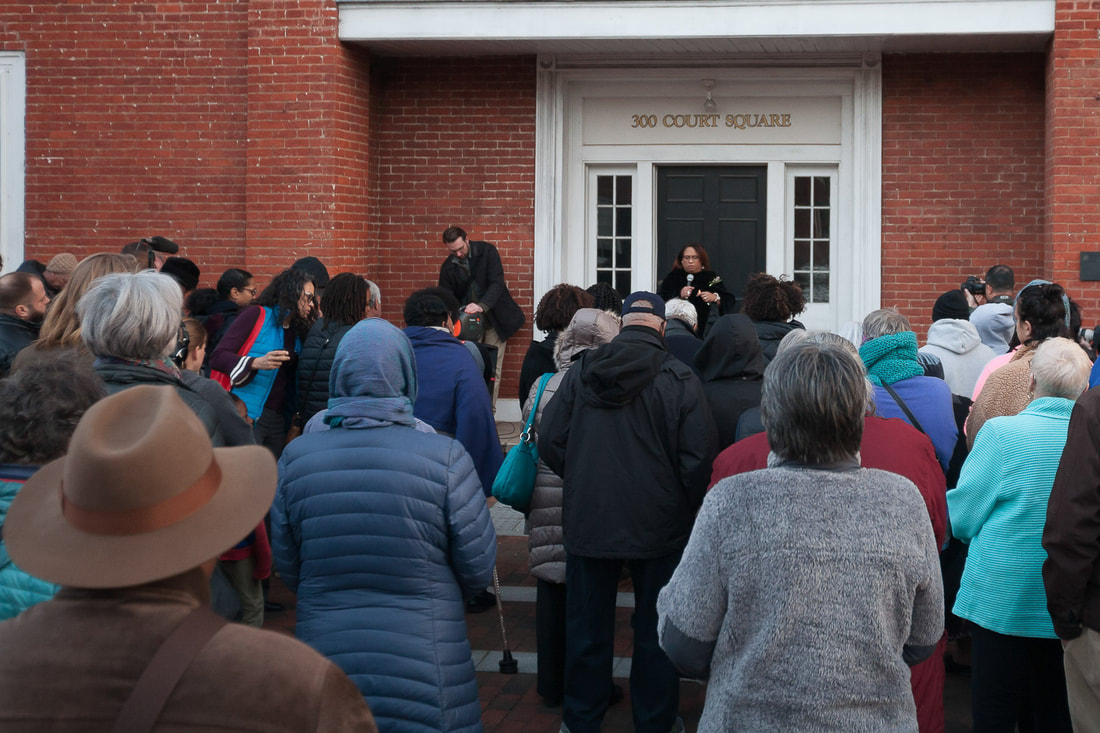 Rev. Carolyn Dillard prayers. Photo credit: Beth Cheuk/Beloved Community Cville Rev. Carolyn Dillard prayers. Photo credit: Beth Cheuk/Beloved Community Cville Rev. Carolyn Dillard, the Associate Minister of Zion Hill Baptist Church of Keswick, then offered a prayer for the 33 enslaved people who were named and their descendants. She also extended prayers to the white oppressors, asking for an end to their destructive superiority. Video credit: Michael Cheuk The next reflection location was where the slave auction marker was located until it was stolen in early February. “It is not an accident that there are tall Confederate statues across the street, while this plaque was buried in the ground,” Don Gathers, Beloved Community Cville Organizer later said. “That power imbalance must be addressed.” The gathering listened to a portion of a 1949 interview with Fountain Hughes, a 101-year-old formerly enslaved Charlottesville man. The voice of Hughes was projected throughout the square, recounting the pain of the enslaved local people just over a century and a half ago. Video credit: Michael Cheuk After a moment of silent reflection, Rev. Xavier Jackson, pastor of the Chapman Grove Baptist Church, beautifully expressed the mood of the gathering with a sung meditation. Video credit: Michael Cheuk At the former location of Swan Tavern, Cauline Yates, descendant of Sally Hemings' sister, Mary, read aloud the 1852 letter by Maria Perkins, an enslaved woman from Charlottesville. In the letter she begs her enslaved husband to try to find a buyer for her before she can be brought by a slave trader during upcoming court days, and she laments that her son Albert had already been sold at the Albemarle County Courthouse. “This was the seat of law, your courthouse in Albemarle County, and just across the corner was where the slave block was,” Cauline Yates, a descendant of the Hemings family, later commented. Video credit: Michael Cheuk Following the reading of this desperate letter, Apostle Sarah Kelley said a few words and sang, “Trouble of the World.” She is a Charlottesville native, and pastor and founder of Faith, Hope and Love International Healing and Deliverance Center. Video credit: Michael Cheuk The vigil was concluded at the steps of the Courthouse where Rev. Brenda Brown-Grooms invited descendants to come forward to ladle out a libation to the ancestors, as she sang, “I Told Jesus” and “Wade in the Water”. Rev. Brenda is a Charlottesville native and co-pastor of New Beginnings Christian Community. Video credit: Michael Cheuk Don Gathers ended the vigil by offering a benediction. Video credit: Michael Cheuk MEDIA COVERAGE and ARTICLES NBC29 - Slave auction block vigil honors enslaved ancestors as Liberation and Freedom Day celebrations begin.
CBS19 - Vigil honors local enslaved ancestors. Daily Progress - Photos of the Vigil. The Cavalier Daily - Community gathers for vigil honoring people sold as slaves in Charlottesville. Culpeper Star-Exponent - Vigil Sunday at Slave Auction Block site in C’ville. The Washington Post - Charlottesville won’t celebrate Thomas Jefferson’s birthday. It will mark slavery’s end instead. Article by Professor Jalane Schmidt - Humans Were Sold Here: On August 11, local anti-racist activists and survivors held a candlelight vigil in downtown Charlottesville to reclaim the spaces where people were injured and traumatized two years ago. Elizabeth Shillue of Beloved Community Cville led the effort with support from Don Gathers, Jalane Schmidt, and Walt Heinecke. The event was held in honor of those who showed up on August 12, 2017, to express gratitude for their protection, pray for their continued healing, and issue a spiritual call for transformation. “Tonight is about reclaiming the locations where folks were injured and traumatized 2 years ago. Singing and praying for our healing and transformation. As we continue working to create the beloved community here in Charlottesville.” -- Elizabeth Shillue “The tragic and traumatic events that took place here on A11 and A12 perpetrated by the white supremacist have permanently stained our community and scarred our individuals. It is an act of power to have the community acknowledge the suffering and sacrifice that took place and hold it with deep care. For many, it’s a cathartic and therapeutic step towards the healing process.” -- Don Gathers We began by gathering at First United Methodist Church, a location that was used by many as a safe space on Aug 12, 2017, and then we proceeded by foot to 5 downtown locations where people were injured by white supremacists two years ago, as well as other spots of historical significance. At each location local leaders offered prayers, songs, and words of history to the activists, organizers, and survivors of August 12th. Contributors included Elizabeth Shillue, Brenda Brown-Grooms (via Susan Minasian & Michael Cheuk), Sharon McCord, Dr. Jalane Schmidt, Dr. Wes Bellamy, Apostle Sarah Kelley, and Don Gathers. Locations included: First United Methodist Church, Market Street Park, Congregation Beth Israel, Court Square, Market St parking garage, and 4th street where the car attack took place. We finished our vigil at the public art exhibit on the Violet Crown wall, where many of the activist's photos are currently on display as part of the Inside Out project. It was a Spirit filled time of reflection and community care! Photo credit: all pictures taken and copyrighted by Kristen Finn
|
Proudly powered by Weebly
